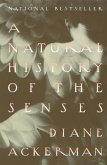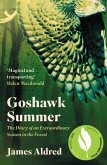In "The Pageant of Summer," Richard Jefferies immerses readers in the vibrant tapestry of nature through a rich, poetic narrative style that evokes the beauty and rhythm of the English countryside. Blending lyrical prose with vivid imagery, Jefferies captures the essence of the summer season, revealing its subtle transformations and the interconnectedness of flora, fauna, and human experience. His acute observations reflect the broader literary context of the Victorian era, signaling a growing appreciation for nature writing as a form of art, one that transcends mere depiction to explore deeper philosophical themes of existence and harmony within nature. Richard Jefferies, a prominent figure in 19th-century English literature, drew upon his deep connection to rural life and the changing landscapes of Wiltshire to inform his work. His personal experiences 'Äî from his pastoral upbringing to his struggles with health 'Äî infused his writing with a passionate authenticity and a reverence for the natural world. Jefferies' insights were ahead of their time, foreshadowing the environmental consciousness of later generations and echoing the Romantic movement's reverence for nature. This book is a must-read for those who cherish nature, artful prose, and philosophical musings. Jefferies'Äô reflective journey through summer serves not only as a celebration of life but also as an invitation to reconnect with the world's beauty. Recommended for both scholars and casual readers alike, "The Pageant of Summer" promises to inspire and rejuvenate the spirit.
Dieser Download kann aus rechtlichen Gründen nur mit Rechnungsadresse in A, B, BG, CY, CZ, D, DK, EW, E, FIN, F, GR, H, IRL, I, LT, L, LR, M, NL, PL, P, R, S, SLO, SK ausgeliefert werden.
Hinweis: Dieser Artikel kann nur an eine deutsche Lieferadresse ausgeliefert werden.









